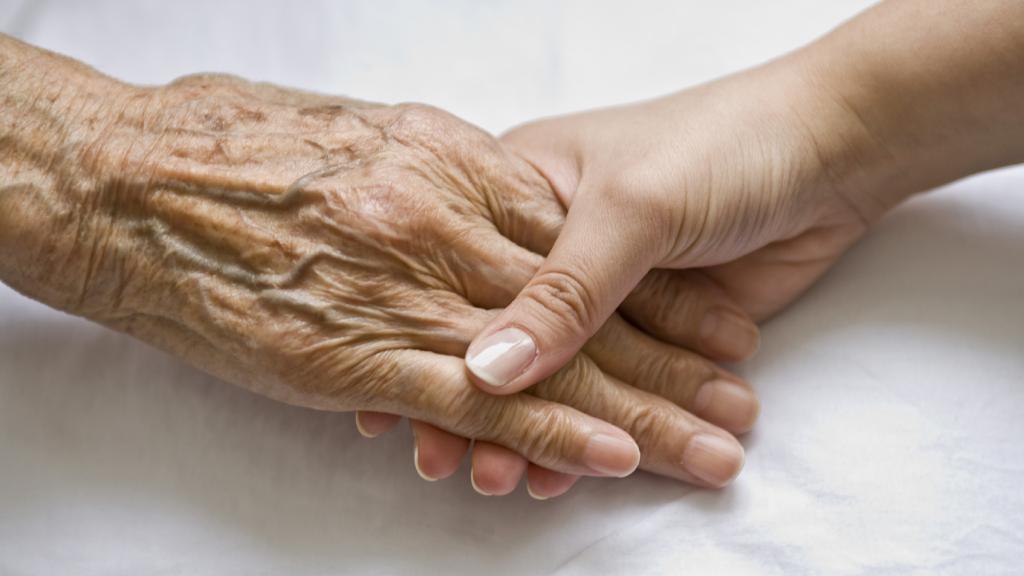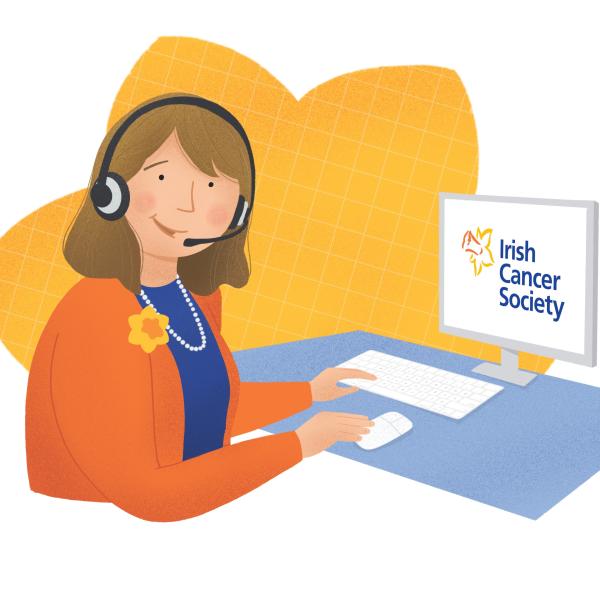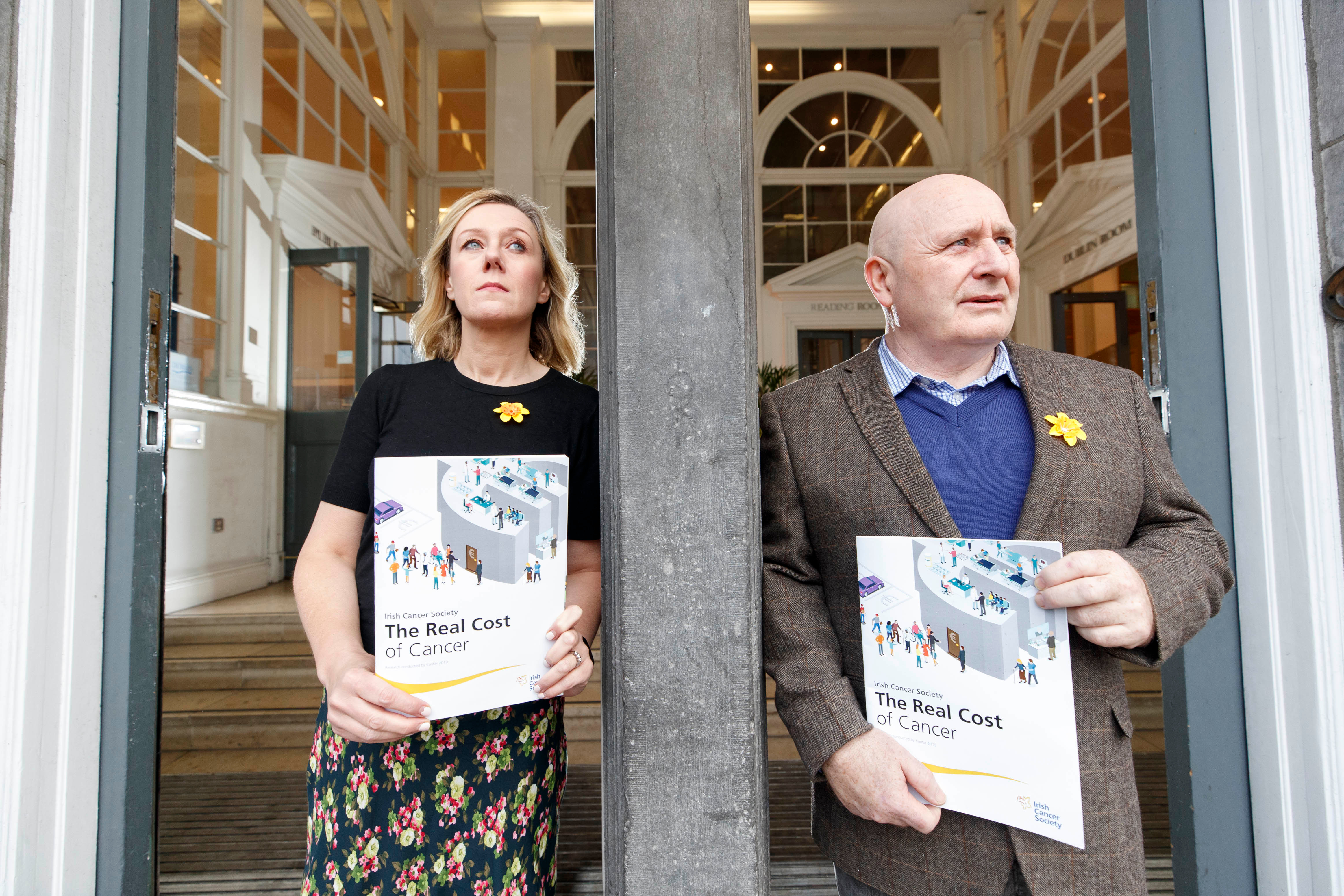
Energy hardship at end-of-life
Each year, 9,000 people die of cancer in Ireland. Each and every person deserves to live well at the end-of-life.
Irish Cancer Society recommendations for energy hardship and healthcare costs
To support people experiencing energy hardship. We call on the Government to provide the following to people living with a life-limiting cancer diagnosis:
- Automatic entitlement to the Household Benefits Package, the Fuel Allowance payment, and the Additional Needs Payment to a person with a life-limiting cancer, waiving means-testing. ·
- Electricity credits for the remainder of a person’s life to support with electricity costs.
In addition, to alleviate costs for people with a life-limiting cancer diagnosis, the Irish Cancer Society calls on the Government to ensure:
- Automatic entitlement to a medical card immediately upon diagnosis.
- No charges for medical card holders and a reduction on the threshold for the Drugs Payment Scheme to at least €72 per month.
Each year, 9,000 people die of cancer in Ireland. Each and every person deserves to live well at the end of life.
Unfortunately, people experience a great financial burden after a cancer diagnosis: household income tends to decrease, while day-to-day costs remain and new costs emerge.
These costs can be very difficult for patients receiving palliative home care and their carers to bear, particularly household bills. At the end of life, people tend to stay at home longer and need to heat their homes to stay warm.
The Irish Cancer Society has funded Dr. Suzanne Denieffe (South East Technological University) and her team in their research examining energy hardship for people with a life limiting cancer diagnosis, receiving palliative care at home. The researchers relied on input from patients with a life-limiting cancer diagnosis, carers, nurses, and energy providers
Energy hardship is a challenge for people at the end of life
Patients and carers reported:
- People receiving palliative care and their carers tend to spend more time at home, and patients feel the cold more.
- All participants felt the need to keep the house warm, and all spoke of increased home heating bills.
- Some reported living in poorly insulated homes and cited high costs of energy-efficient upgrades.
- Many participants reported not being aware of energy hardship interventions, such as registering as a vulnerable customer.
Palliative home care nurses reported:
- Almost 1 in 3 nurses reported that a person they cared for, or their family, initiated a conversation about energy hardship.
- Nurses identified housing issues such as damp, mould, condensation, and draughts
- Three in 5 nurses reported households’ difficulty in paying bills (e.g. utilities, mortgage, rent)
- Two in 3 nurses reported households’ difficulty affording home heating.
Energy providers and regulators reported:
- Customers have to self-register as vulnerable.
- To minimise disconnections and prioritise reconnections there are protective measures including a register of vulnerable customers.
- Customer service teams receive training on how to deal with customers experiencing financial difficulty.
Watch the Energy Hardship in Palliative Care Video
Energy Hardship can be a challenge for people living at home with palliative care needs, including patients with advanced cancer. This video captures the views on the energy hardship of a person who receiving palliative care at home. Getting this personal perspective on energy hardship is very important in highlighting the challenges that people with palliative care needs may be facing.
The Irish Cancer Society funded Dr. Suzanne Denieffe (South East Technological University) and her team in their research examining energy hardship for people with a life-limiting cancer diagnosis, receiving palliative care at home
Data protection
Please find more information on the Irish Cancer Society’s Privacy Policy here.
If you have any queries regarding the processing of your personal data in this research or to exercise your data protection rights, please contact the Irish Cancer Society Data Protection Officer at: dataprotect@irishcancer.ie

Contact the Irish Cancer Society Support Line
If you have worries or concerns about cancer, you can speak confidentially to an Irish Cancer Society Cancer Nurse through the Freephone Support Line on 1800 200 700. Monday to Friday, 9.00am - 5.00pm
For more information
Phone
01 231 0500

